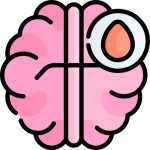Aphasia Due to Brain Injury
Traumatic brain injuries (TBI) are very common. According to the Centers for Disease Control and Prevention (CDC), at least 1.7 million people suffer from a TBI every year. There are an estimated 5.3 million people currently living with a brain injury. If the brain injury occurs in an area of the brain that impacts speech and language, aphasia can occur.
Brain injuries are most common in adolescents and older adults. They are also more common in males than females. The number of TBIs each year has been steadily rising. However, deaths due to TBI are falling. Because of this, there are more people living with brain injuries.
A brain injury is most often caused by direct head trauma, such as a car accident or a severe fall. A penetrating TBI can occur in the case of a gunshot wound or other injuries that compromise the outer layer of the brain. The injury can be classified as either mild, moderate, or severe.
Aphasia and Traumatic Brain Injury
Aphasia is most common following a severe brain injury that impacts the brain’s language centers. Depending on the nature of the injury and extent of the damage, aphasia can be short-term or long-term. Aphasia as a result of TBI is very similar to aphasia that results from strokes and other conditions.
However, one difference is that people who have had a TBI are more likely to have pragmatic language impairments. Pragmatics refers to social communication. This can include staying on topic, taking turns in a conversation, and facial expressions.
People with brain injuries are likely to experience other impairments as a result of the injury. These can include:
- Physical effects, including headaches, nausea, seizures, weakness/paralysis and movement impairments
- Cognitive impairments, including attention, memory, reasoning, problem-solving, organizing and impulse control
- Vision changes
- Hearing loss and/or other hearing changes, such as tinnitus or hypersensitivity to sounds
- Mood changes; may be over-reactive or unemotional with a flat affect
The effects of TBI vary significantly depending on the location and severity of the damage. Speech-language pathologists (SLPs) can work with people who have aphasia as a result of TBI. They can also work on strategies addressing the cognitive changes that have occurred.
Click on the tiles below to learn more about the most common causes of aphasia.
Stroke
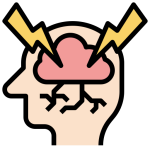
Brain Injury

Brain Tumor
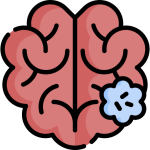
Brain Surgery

Brain Infection
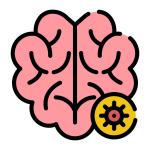
Dementia
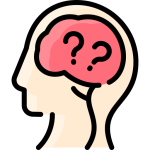
Developmental Disabilities
